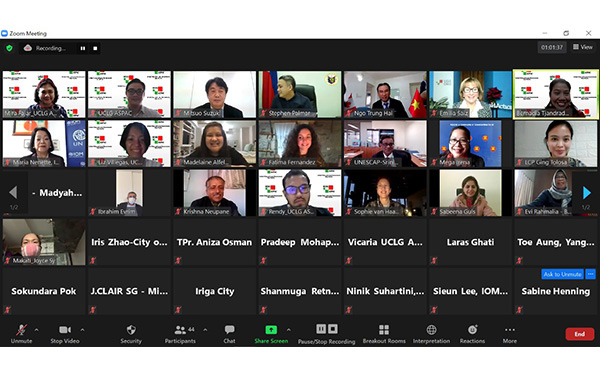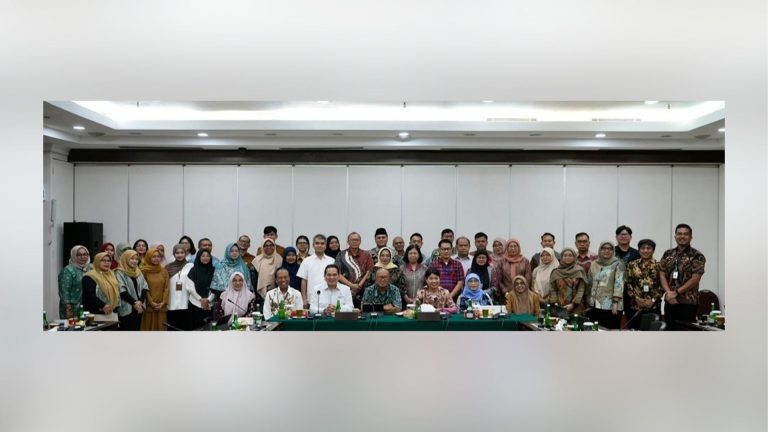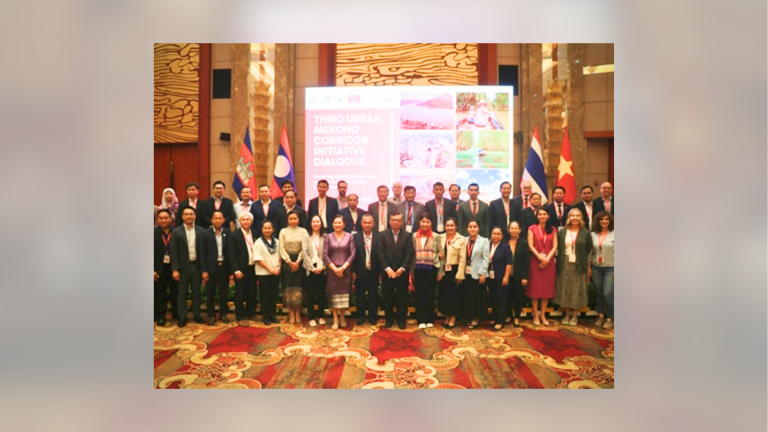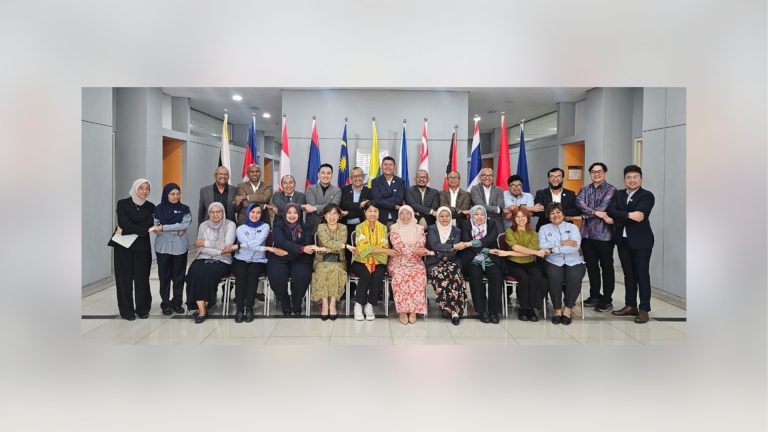18 December 2020 | UCLG ASPAC, under the framework of the ASEAN Mayors Forum, organised a webinar on Cities and Migration: An ASEAN and Asia-Pacific Situationer. With the intensity of migration in the region, UCLG ASPAC acknowledged its positive impact in driving city growth. This webinar was organised in close collaboration with various relevant institutions as well as city representatives to give wider insights on the dynamics of migration within cities in the Asia-Pacific region. The virtual discussion was interesting as it was conducted in line with the International Migrants Day on 18 December 2020.
UCLG ASPAC Secretary General Dr. Bernadia Irawati Tjandradewi stated in her opening that the webinar is seeking ways to collaborate and the role of cities and local government in migration. She shared that UCLG ASPAC participated in the 3rd Stakeholder Consultation for the Asia-Pacific Regional Review of the Implementation of the Global Compact for Safe, Orderly, and Regular Migration (GCM) and the recently held Asia-Pacific’s regional consultation. She also congratulated the launch of the Asia-Pacific Migration Report 2020 that was released on 18 December 2020, the same day of this Webinar. Attending this session was UCLG Secretary General Ms. Emilia Saiz emphasising the importance of connecting regional perspective to the global and that she looked forward to the integration of the vision of Asia and the Pacific. Following her participation as local government representative during the Abu Dhabi Dialogue in July 2020, Iriga Mayor Madelaine Yorobe Alfelor discussed how the city supported the return of locally stranded individuals from other cities in the country and overseas Filipino workers (OFWs) who have been repatriated.
Ms. Maria Nenette Motus, Regional Director of the International Organisation for Migration (IOM) – Regional Office for Asia and the Pacific, shared that Asia is the origin of 40% of the world’s international migrants. There are 80 million migrants in Asia-Pacific region and 10.1 million in ASEAN as of 2019. She highlighted that labour migration is a prominent feature of human mobility and that migration will continue to drive the growth of cities. She also introduced some of the tools that IOM developed to facilitate strategic planning to ensure the protection of the human rights of migrants, namely the Migration Governance Indicators (MGI), Local Migration Governance Indicators (Pilot Phase), and Toolbox of Migration-Related Elements for the City Resilience Strategy.
Dr. Srinivas Tata, Director of the Social Development Division of the United Nations Economic and Social Commission for Asia and the Pacific (UNESCAP), acknowledged that localised implementation of the Global Compact for Safe, Orderly, and Regular Migration (GCM) will need cities and local leaders to be at the centre. “There is an immense power to make a difference at the city level,” he added. Dr. Tata discussed that the Asia-Pacific Regional Review of GCM Implementation is planned as a hybrid event and scheduled from 10 to 12 March 2021. Building up towards this, UNESCAP and the Regional UN Network on Migration for Asia and the Pacific are organising four stakeholder consultations focused on four clusters of the GCM objectives. He encouraged the participation of local governments in the Regional Review. He thanked UCLG ASPAC for facilitating local governments to join the regional consultation.
ASEAN has also been actively engaged in the protection and promotion of the rights of migrant workers. Ms. Mega Irena, Head of the Labour and Civil Service Division of the ASEAN Secretariat, reported that following the signing of the ASEAN Consensus on the Protection and Promotion of the Rights of Migrant Workers in 2017, the action plan and self-assessment tool have been adopted. She also presented ASEAN’s works such as the ASEAN Compendium of Migrant Workers Education and Safe Migration Programmes, ASEAN Guidelines on Effective Return and Reintegration of Migrant Workers, and other studies to be published in 2021.
City perspectives on migration were also tackled during the webinar. Atty. Stephen Palmares, Mayor of Passi and Focal Mayor for Migration and Development of the League of Cities of the Philippines (LCP), elaborated on his initiatives such as the establishment of an OFW centre to ease the process of doing government transactions and launch of the Balik Passi Program to support repatriated migrant workers due to the COVID-19 pandemic. “Both national and local governments must work together to develop and implement a comprehensive programme that would provide opportunities for the affected OFWs,” he added. Mayor Palmares also emphasised the necessity of including migrants in economic rehabilitation plans and policies and the vital role of local governments in matching the supply and demand of available skills and resources in their locality.
Mr. Mitsuo Suzuki, Director of the Hamamatsu City International Affairs Division explained their Intercultural City Vision “to create and grow based on mutual understanding and respect.” Hamamatsu is home to over 25,000 foreign residents making up 3.2% of the city’s population. There are two key facilities that support foreign residents, the Foreign Resident Study Support Centre which provides Japanese language study support, and the Intercultural Centre that offers consultations on daily life, legal consultations, and counselling in multiple languages. Since 2011, the city introduced the Hamamatsu Model to ensure that children of foreign residents enrol in schools. Furthermore, there are two networks that support foreign residents, the Intercultural Integration and Promotion Council and the Foreign Residents’ Council for Integration. Hamamatsu also cooperates with domestic cities through the Council of Municipalities with Large Migrant Populations and international cities through the Intercultural Cities Network. Mr. Suzuki indicated three things that local governments welcoming migrants need to do: formulate a clear vision, cooperate with foreign and Japanese city residents, and share information between cities.
Ms. Sophie van Haasen, Global Forum on Migration and Development Mayors Mechanism Coordinator, expounded how local governments have been involved in the GMFD. The Mayors Mechanism was established in 2018, co-steered by UCLG, IOM, and the Mayor Migration Council, to bring cities in the GFMD process. The GFMD was created in 2007 as a state-led, informal, and non-binding process that shapes global debate on migration and development. Ms. van Haasen noted that in Asia and the Pacific, Bangladesh and the Philippines served as former chairs of the GFMD. This year of 2020, there have been 2 regional consultations of the GFMD that involved the region, the Bali Process and the Abu Dhabi Dialogue. She raised that it is important for local governments to engage in the GFMD in order for local governments to demonstrate their role in the delivery of global goals, foster inclusive migration policies, and catalyse new partnerships. She also encouraged local governments to join the It Takes a Community Campaign.
In his closing remarks, Dr. Ngo Trung Hai, Secretary General of the Association of Cities of Viet Nam, appreciated the opportunity to listen to the experiences of cities from neighbouring countries. He recommended the integration of migration into development policies at both national and local levels.











